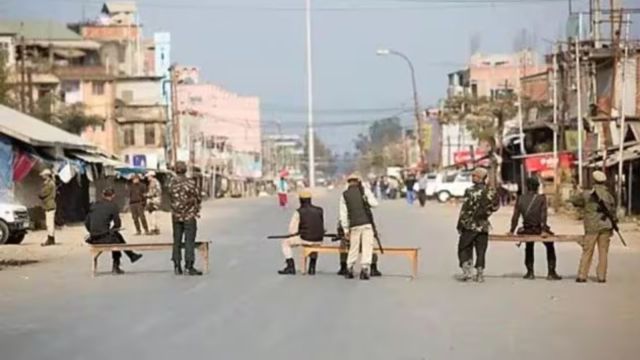
President’s Rule (PR) in Manipur is going to be extended for another six months when Home Minister Amit Shah moves a resolution in Parliament. No press conference, no public address and explanation. The Gazette notification marked merely a continuation: Silent in tone, administrative in nature, and final in its implication.
Since May 3, 2023 — more than 816 days ago — Manipur has been in the grip of an ethnic conflict that the government has neither resolved nor meaningfully acknowledged. Tens of thousands remain displaced. Thousands of homes lie in ruins. Entire districts stand emptied, redrawn by checkpoints, militias, and state indifference. And yet, in the national conversation, Manipur has all but disappeared.
President’s Rule is supposed to be an exceptional provision. In Manipur, it has become a Rule. What began as a legal suspension of a failed state government has hardened into a mode of governing.
In the Valley, what exists is not peace but compression. Curfews are loosely enforced. There is no genuine return to civil governance, only the illusion of one. In the Hills, a shadow bureaucracy functions under the patronage of civil bodies and the arbitration of paramilitaries. State services have thinned out or vanished altogether. In between, there are buffer zones, some patrolled, some negotiated, others defined only by fear.
The Centre has tried to portray an image of calmness. Killings have gone down. Traffic has resumed. Camps are orderly. But these surface indicators conceal the truth: This is not resolution, it is stagnation. In Churachandpur, thousands of displaced people still remain in makeshift relief centres, many of them living in bamboo-framed shelters for over a year. In Imphal, families forced out have not been invited back. In Kangpokpi and Moreh, the writ of the state is thin, sometimes symbolic, often absent.
Manipur is witnessing not the beginning of peace, but the quiet marking out of a state split in two. The Valley and the Hills now operate as separate entities, divided by memory, mistrust, and militarisation. Delhi, meanwhile, has receded. Having imposed PR and extended, it has absented itself from responsibility. The state remains trapped in a holding pattern, ungoverned but tightly controlled.
There is a chilling normalisation at work. In the absence of active violence, the extension of PR is now read as stability. A government in suspended animation is interpreted as effective. The breakdown is so complete that many have stopped expecting a return of governance. What they fear now is its return in the wrong form.
And that is the question that looms largest: Whose governance will come back? Will it be one imposed again from Imphal, reproducing the very exclusions that led to the breakdown? Will it be a performative consensus stitched together in Delhi, signed by CSOs with no grassroots legitimacy? Or will it be something worse, a bureaucratic reimposition without political reckoning? The Gazette answers none of these. It only affirms the status quo. Six more months. Same silence.
That silence carries consequences. Every day, the divide hardens not just territorially, but also psychologically. Children in relief camps enter a second year of schooling in temporary shelters. Community elders struggle to preserve memory and continuity in environments stripped of civic institutions. Towns that once shared commerce and kinship now function as oppositional enclaves. Behind it all lies the unresolved question: Is this India’s idea of federalism, or is it quiet undoing?
In the hills, hope refuses to die. Even in displacement and abandonment, communities are not waiting. They are rebuilding homes from scratch, keeping children in makeshift schools, tending to scorched fields, and preserving memories where institutions have collapsed. Some speak of a future built from below, no longer waiting for rescue. But there is a limit to endurance without recognition. A political future cannot be built on deferral and silence. Justice delayed becomes denial.
In a state where conflict has reshaped geography and governance, the PR extension is not a solution. It is a symptom which reveals a regime that prefers control over consensus, quiet over truth, and pause over process.
If New Delhi imagines that PR buys time, it must now confront the harder truth: Time is running out. The deeper this fragmentation settles, the harder it will be to stitch Manipur back together. Reconciliation requires more than paperwork. It demands political courage, the courage to listen. Until then, the people of Manipur will be left with a Gazette without a government and a state without a future.
The writer is a researcher and writer based in Manipur